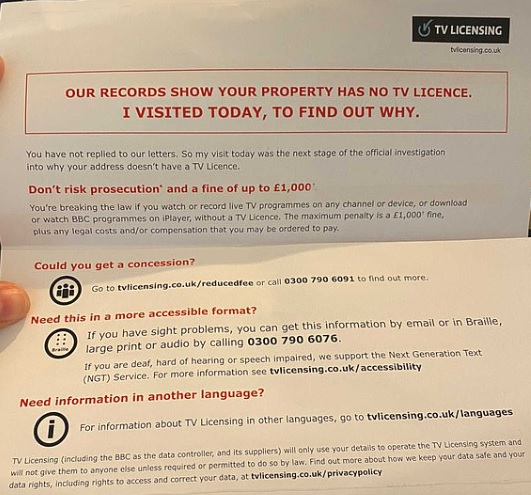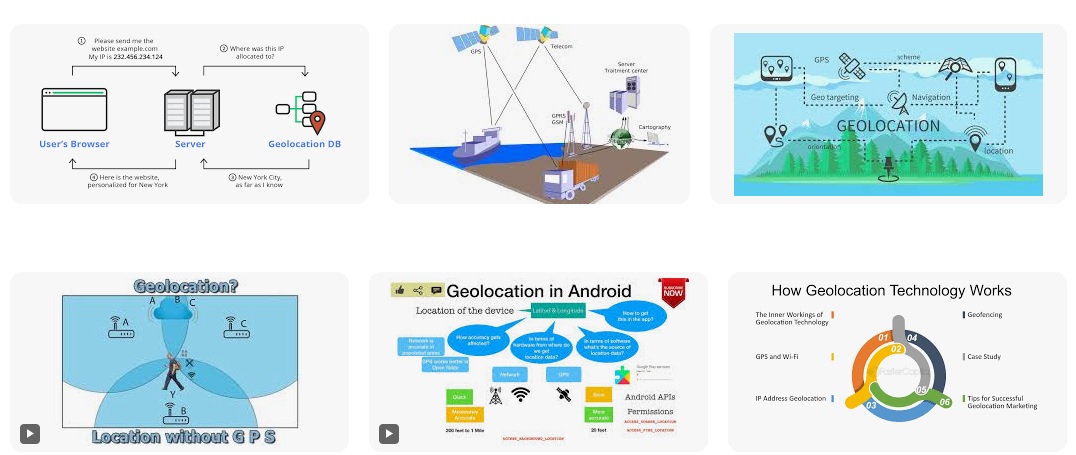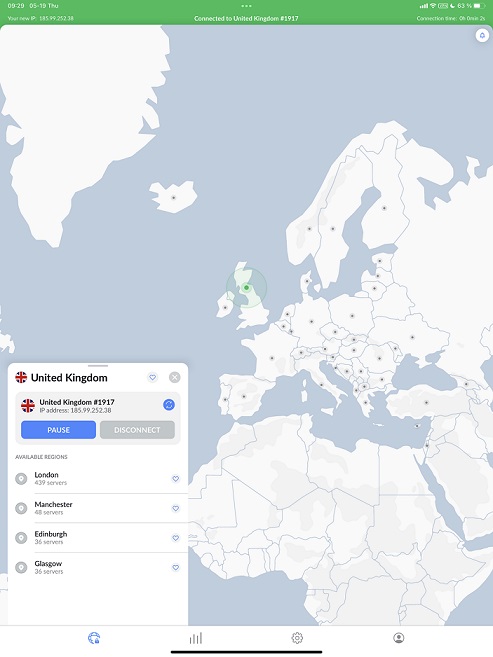Stay Undetected on iPlayer: Can the BBC Track You?
Basically to watch the BBC (or any live TV) you need a TV license, in the United Kingdom this is the law. However, the UK is not quite a full surveillance society (well, not yet) so do you really have to buy one? Perhaps you just have a quick check of Match of the Day occasionally, maybe you just stream the news now and again, or only download the odd box set. The TV license is currently £159 a year so it’s a decent amount of money, can they actually find out if you’re watching though?
Well basically yes, if you’re in the UK then your taking a big risk. It’s actually fairly easy to detect who’s watching especially if you do it online unless you’re using something like a VPN to hide your location whilst streaming.
HINT – NORDVPN can both hide your location and allow access to the BBC iPLayer from outside the UK
NordVPN Discount Page
If you don’t want to read the rest!
Tuning In Without Trouble: Understanding BBC iPlayer Monitoring
The Big Brother of Broadcasting: Can the BBC See You?
When you’re cozied up with your favorite BBC programme on iPlayer, you might ponder whether your viewing habits are private. The truth is, your use of BBC iPlayer could be visible on the BBC’s radar, especially if you aren’t covered by a valid TV licence. They may not have your home address on file, but they can certainly track your usage to ensure compliance with licensing laws.
Decoding Detection: How Does iPlayer Activity Get Tracked?
The BBC’s method for ensuring everyone tuning into iPlayer is doing so legally involves a few steps:
- Geo-Location Via IP: First, they capture your IP address to determine your geographic location.
- Licence Check: They then cross-reference this location with their database to check if you’re a licensed viewer.
- Warning Notices: If your IP indicates you’re in the UK without a TV Licence, expect a prompt warning to rectify this.
- Legal Action: Persistent avoidance could lead to legal consequences, with the BBC taking non-compliant viewers to court.
Keep in mind, even if you’re using a VPN, the BBC may have mechanisms in place to detect this and ascertain if users are dodging licence fees.

Staying One Step Ahead: Evading the BBC’s Watchful Eye
The Lowdown on TV Licences: Do You Need One?
Absolutely, if you’re in the United Kingdom and love watching television as it’s broadcasted live or enjoy catching up on BBC iPlayer, a TV licence is non-negotiable. This license isn’t just a BBC thing; it’s for any live TV, regardless of the channel. Whether you’re all about dramas, documentaries, or sports, you need to be covered by a TV licence.
Don’t forget, it’s not just about traditional television sets. You’ll need a licence if you watch on a laptop, smartphone, or any other device. And yes, even if you’re paying for a cable service or streaming via another platform like YouTube, a TV licence remains a must-have to stay on the right side of the law.
Digital Footprints: The Role of IP Addresses in Your iPlayer Use
Your IP address is the cornerstone of how the BBC tracks iPlayer use. Think of your IP address as your digital home address; it’s a unique string of numbers associated with your internet connection that tells websites where you are in the world.
Here’s how it impacts your iPlayer usage:
- Geo-Identification: IP addresses geographically pinpoint where you are tuning in from, letting the BBC know if you’re within the UK territory.
- Licence Verification: They use this information to verify that your location matches a residence with a paid TV licence when accessing iPlayer.
- Evasion Detection: Attempting to access iPlayer from outside the UK without proper rights can be flagged, especially if you’re using a VPN service that the BBC identifies as non-UK based.
Remember, even though your IP can lead to your physical address, public access points are generally licensed. However, for private connections, the BBC’s scrutiny is more precise.

The VPN Veil: Shielding Your iPlayer Usage from Scrutiny
Navigating the VPN Landscape for iPlayer Privacy
Navigating the VPN (Virtual Private Network) landscape can be quite the adventure for those seeking privacy on BBC iPlayer. VPNs offer a cloak of anonymity, masking your real IP address and rerouting your connection through servers in different locations, including the UK.
Here are a few things to consider:
- Strong Encryption: A robust VPN provides tough encryption, keeping your streaming habits shielded from prying eyes.
- Server Variety: Select a VPN with plenty of UK servers to maintain good connection speeds and access to iPlayer.
- Reliability: Not all VPNs can bypass the BBC’s advanced detection systems, so pick one with a proven track record.
For instance, NordVPN has garnered praise for its reliable streaming on iPlayer, but as with all VPNs, occasional downtimes may occur. This generally happens when too many people use the same IP address to stream concurrentlyfrom the BBC. It’s fixed when that IP address is rotated out.
Will a VPN Make Me Invisible to the BBC?
A VPN is a powerful tool for maintaining your privacy online, and yes, it can make you virtually invisible to the BBC when using iPlayer. By concealing your actual IP address and tunneling your connection through servers in the UK, it can appear as if you’re cozying up with your favorite BBC show from within British borders—even if you’re not.

But here’s the catch:
- VPN Detection: The BBC is on the lookout for VPN traffic and might block certain VPN servers it identifies.
- Not Full-proof: While a VPN hides your location, poorly configured ones or those with IP leaks can still leave you exposed.
Services like NordVPN are often recommended because of their vigilant server refreshing to ensure access remains open for users. They can’t make you completely invincible, but high-quality VPNs get pretty close to providing a cloak of invisibility. Remember the vast majority of VPN services are automatically detected and blocked by the BBC and most large media sites, so ensure your chosen service works before subscribing to one.
Consequences and Confusion: What If You’re Caught?
Potential Penalties for Unlicensed iPlayer Access
So if you’re watching BBC, any live TV or streaming from iPlayer then you need a TV license. However this is a UK law so only applicable if you’re actually physically located in the United Kingdom, watching from another country using a VPN is completely safe.l;
Remember Penalties only Apply if you’re in the UK !
If you’re caught using BBC iPlayer without a TV licence, the consequences can be quite severe if you’re resident in the United Kingdom. Here’s what you could face:
- Fines: Expect a fine up to £1,000, not including any legal costs, which can rise significantly in certain circumstances.
- Prosecution: Unlicensed viewing can lead to prosecution, although no longer a criminal record.
Please note, prosecution is a last resort, and you’ll typically receive notices beforehand. The BBC uses enforcement as a deterrent, urging viewers to comply before it comes to this.
Myths vs. Facts: Understanding Enforcement Realities
Separating myth from fact is key when it comes to the BBC’s enforcement of iPlayer usage.
Myths:
- Invincible Anonymity: Many believe they’re completely untraceable online. False; the BBC uses sophisticated methods to detect you and your location.
- Casual Complacency: Some assume casual or infrequent use won’t attract attention. Not true; much of the monitoring is automated so all unlicensed use is potentially subject to monitoring.
Facts:
- Active Enforcement: The BBC actively looks for unlicensed usage and has legal authority to enforce the licensing requirement.
- Legal Ramifications: Being caught can lead to fines and even prosecution.
Understanding these realities helps maintain clarity and compliance when streaming your favorite BBC content.
International Audiences: The BBC’s Reach Beyond the UK
Watching from Abroad: Does the BBC Track International Viewers?
For international viewers yearning for the latest from the BBC, it’s interesting to note that while the BBC iPlayer is geo-restricted, the corporation doesn’t actively track individuals outside the UK. The primary focus is on making sure that UK-based users have a TV licence.
If you’re abroad and try to access iPlayer, you’ll likely be met with an error message stating that the content isn’t available in your region. It’s not so much about tracking your individual activity; it’s about enforcing geographic broadcasting rights.
For seamless streaming, using a VPN with a UK server can solve this problem, yet there’s always a small risk of detection if the BBC identifies and blocks the VPN server. This will just stop you watching though, there’s no other repercussions. In twenty years monitoring this tactic I have never heard of anyone having their BBC iPlayer account removed (which would be no big deal anyway as you can create another one).

Accessibility Abroad: Is a UK TV License Required?
Even when you’re abroad, the temptation to catch up on your favorite BBC shows might have you wondering whether a UK TV License is required. Strictly speaking, the license is a UK-centric obligation. If you’re outside the UK, even if you’re a UK resident traveling or living abroad, the license doesn’t apply to you because the service is not meant to be accessed internationally.
However, if you use a VPN to connect to iPlayer from abroad, be aware that technically, you’re expected to have a TV License, just as you would if you were in the UK. Using iPlayer without a license—regardless of your method—contravenes BBC’s terms of use.
Technology and Tracking: Advanced Ways the BBC Could Monitor Viewers
Beyond Detector Vans: Modern Surveillance Techniques
Gone are the days when the almost mythical detector vans roamed the streets. In today’s digital age, the BBC employs far more sophisticated methods to ensure compliance with TV licence requirements for iPlayer usage.
- Wi-Fi monitoring: Rumors once swirled about Wi-Fi sniffing, but this has largely been debunked. It’s impractical and legally questionable to survey private Wi-Fi data.
- Data Analysis: The BBC is more likely to analyze viewer data patterns to identify unlicensed viewing behavior.
- Partnerships with ISPs: They might not be monitoring your every move, but the BBC could work with Internet Service Providers (ISPs) to flag unusual patterns indicative of license dodging.
These methods keep pace with evolving technology, ensuring they remain effective in a landscape where old-school vans no longer cut it.
Web-Based Tools and Technologies: The Future of Licence Verification
The future of licence verification seems poised for a digital overhaul. As online viewership dominates, the BBC and other broadcasters are considering advanced web-based tools and technologies to validate viewer licences:
- Digital Licensing: User accounts linked directly to licence payments, creating a streamlined verification process during log-in.
- Blockchain Technology: Potentially leveraging blockchain to create a secure, tamper-proof record of licence holders.
- Biometric Verification: Facial recognition or fingerprint scanning to confirm user identities could be on the horizon.
- Smart Contracts: Automating access to content for individuals with proof of licence via self-executing contracts.
While these ideas may sound like they’re from a sci-fi series, they underscore important steps towards ensuring compliance and preventing licence evasion.
FAQ: Safeguarding Your Private Viewing Habits
Can the BBC legally track my IP address through iPlayer?
Yes, the BBC legally tracks IP addresses through iPlayer to check if viewers are streaming content within the UK and are covered by a TV licence. This is a part of their enforcement strategy to ensure lawful viewing.
What are the risks of using BBC iPlayer without a TV licence?
Using BBC iPlayer without a TV licence risks significant fines up to £1,000, legal costs, and potential prosecution which could lead to a criminal record.
How can I safely watch BBC iPlayer without being detected?
To watch BBC iPlayer without detection, use a reputable VPN to mask your IP address. Choose a VPN with strong encryption that regularly refreshes its UK servers to avoid being flagged by the BBC.
What steps does the BBC take to monitor unlicensed access to iPlayer?
The BBC monitors unlicensed access to iPlayer by checking for a valid TV licence associated with your IP address and analyzing data for indicators of evasion, including the use of VPNs.